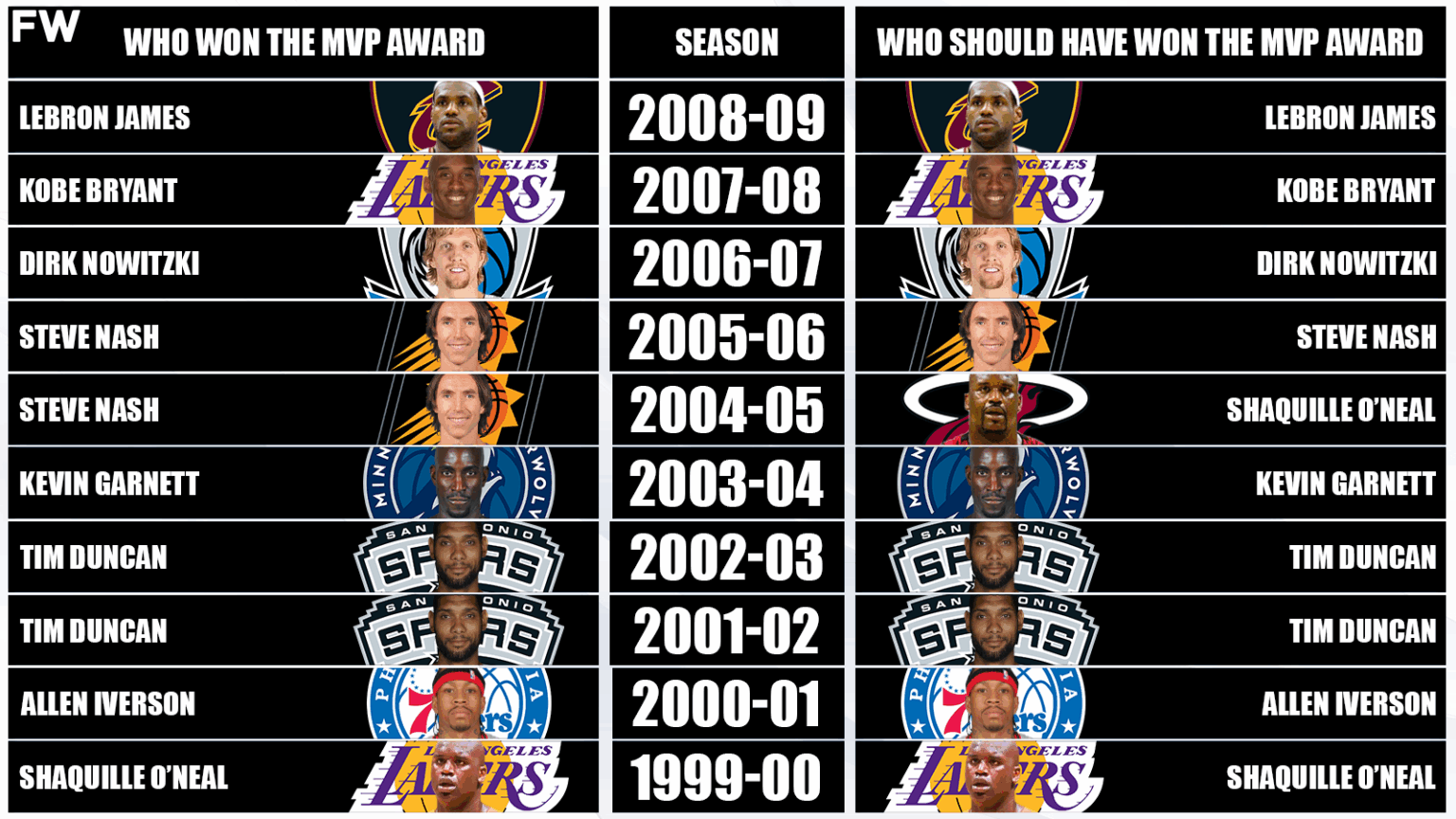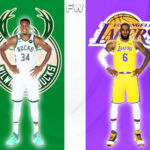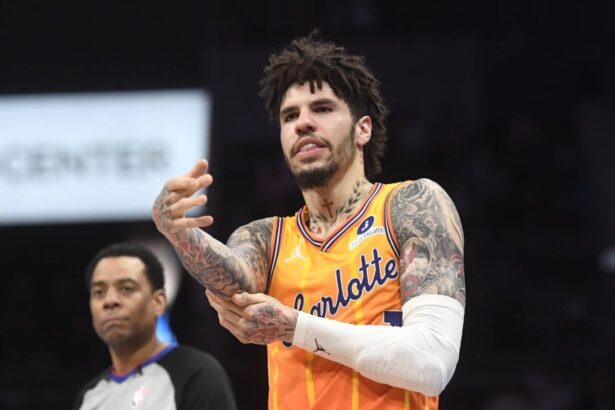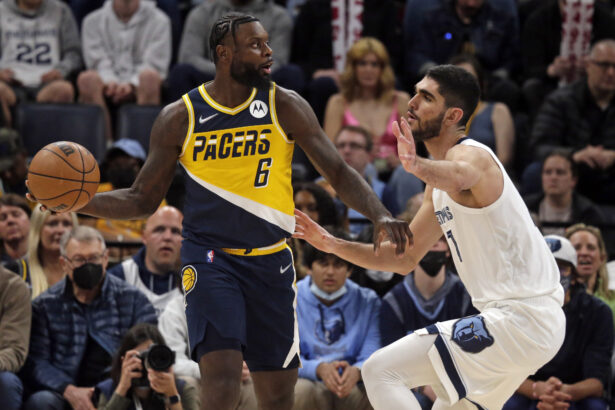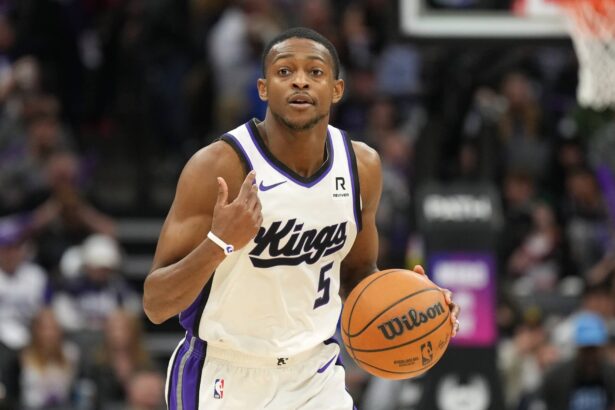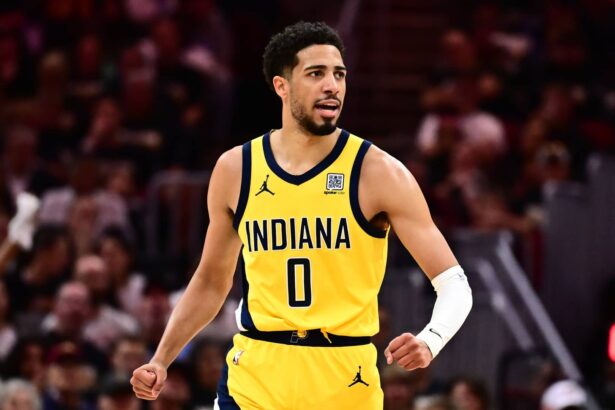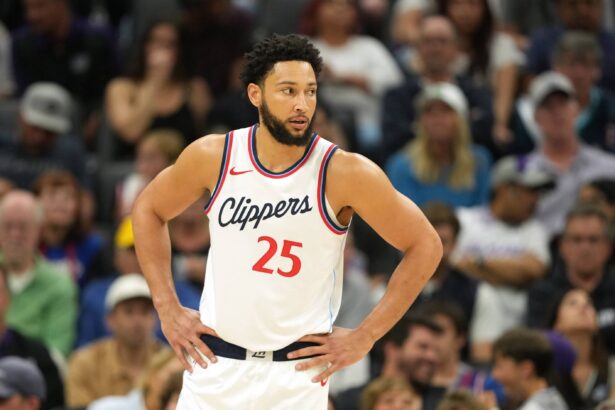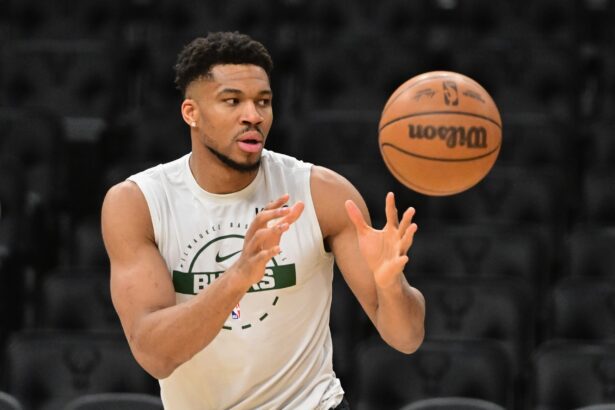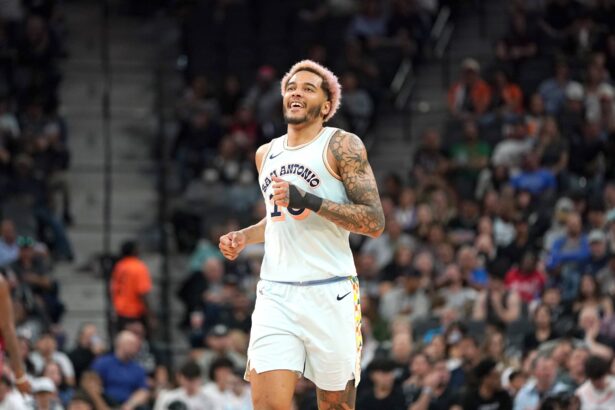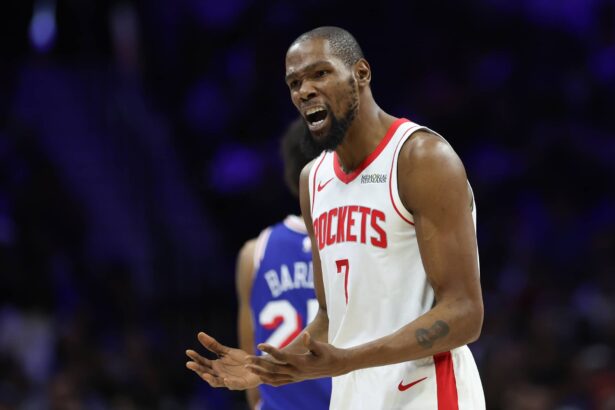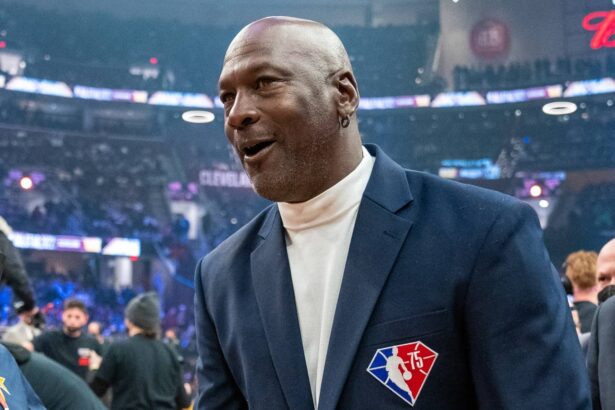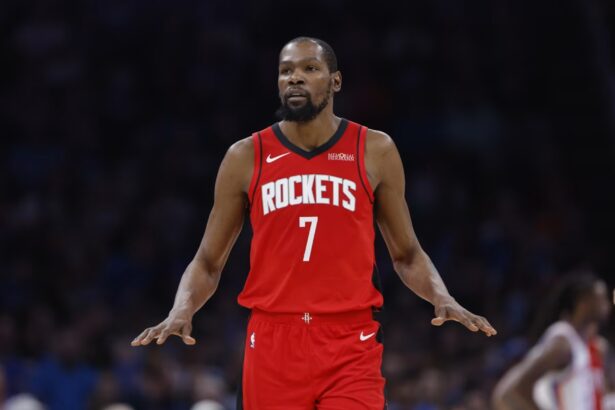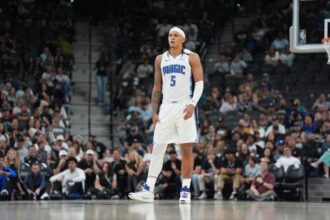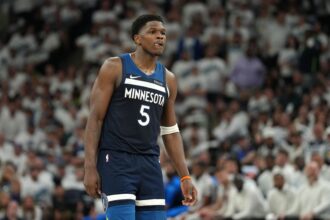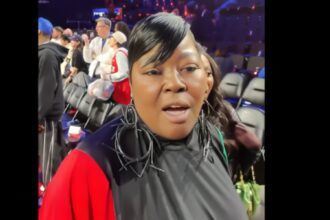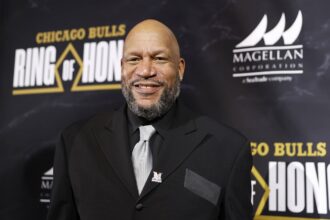From a player’s point of view, winning the MVP award is the highlight of most players’ careers since winning an NBA championship is more of a team accomplishment. Therefore, other than a Finals MVP trophy, the MVP award has to be the achievement that is most highly distinguished and impressive. We have witnessed some incredible MVP seasons since the first MVP award was handed out to Bob Pettit in 1956. Every year since 1956, we have had an MVP winner but not every player who actually won the award deserved it. Oftentimes, voter bias and sometimes statistical analysis without looking at the whole picture means a player is robbed of an MVP award in a given season.
Let’s look at the deserved MVP winners during the iconic 2000s decade that saw Tim Duncan and Steve Nash win two awards each, while Shaquille O’Neal and Kobe Bryant only managed one apiece. Did every year’s MVP truly deserve the award, or did some players get robbed? We have already seen how history could have been changed over the last ten years if the deserved MVP was given his just due, including how Michael Jordan should have had a whopping eight MVP awards instead of five. This time, we’ll go back in history to decide who should have won the MVP award every year between 2000 and 2009.
1999-00 NBA Season
MVP: Shaquille O’Neal 29.7 PPG, 13.6 RPG, 3.8 APG, 0.5 SPG, 3.0 BPG
Who Should’ve Won: Shaquille O’Neal
The last center since Nikola Jokic to win the MVP award, Shaquille O’Neal was the unquestioned best player in the league in the 1999-2000 season. There was no answer for him, and he usually fouled out most defenders on most nights. Shaq was extremely dominant on both ends of the floor and one of the greatest players we have ever seen during his period of winning NBA championships with the Los Angeles Lakers.
By far the most dominant physical specimen in the league since Wilt Chamberlain, O’Neal led the NBA in win shares and scoring. The Diesel probably should have won another MVP award before the end of his career, and that would have come only a few years later if voters voted properly, but his 2000 season made history nonetheless, as he also would win Finals MVP and his first NBA title.
2000-01 NBA Season
MVP: Allen Iverson 31.1 PPG, 3.8 RPG, 4.6 APG, 2.5 SPG, 0.3 BPG
Who Should’ve Won: Allen Iverson
Allen Iverson’s MVP season was one for the ages, as the 6’0” guard was single-handedly responsible for carrying a Philadelphia 76ers team all the way to the NBA Finals. Iverson was simply unguardable, and he used his speed and quickness to his advantage when it came to beating defenders off the dribble. Perhaps no player in the league at that time outside the Los Angeles Lakers superstar duo of Shaq and Kobe captivated fans’ attention on the court every night.
Allen Iverson might have probably been the greatest player ever, pound for pound, in his 2001 campaign because he influenced winning better than anyone else. Somehow, despite having a 34-year-old Dikembe Mutombo as his best teammate, Iverson had his greatest all-around season in 2001 as the team made the NBA Finals and even won Game 1 against the Lakers. No doubt, Iverson deserved the MVP award.
2000-02 NBA Season
MVP: Tim Duncan 25.5 PPG, 12.7 RPG, 3.7 APG, 0.7 SPG, 2.5 BPG
Who Should’ve Won: Tim Duncan
The Big Fundamental, Tim Duncan, put up spectacular numbers across the board as he led the San Antonio Spurs to an amazing 58-24 record, although they would run into the championship Lakers squad in the second round in the playoffs. Many voters felt that Jason Kidd deserved the MVP in 2002 as he finished second in the MVP race, but Duncan’s impact was undeniably great for the Spurs all season long as he started building his case as the most talented power forward ever.
The San Antonio Spurs finished with 58 wins and the second seed in the Western Conference, with Duncan leading the league in win shares. Duncan was spectacular on both ends of the court as he posted 2.5 BPG while also shooting 50.8% from the field. The Lakers got the last laugh with the NBA title at the end of the year, but the Spurs went as Duncan went.
2002-03 NBA Season
MVP: Tim Duncan 23.3 PPG, 12.9 RPG, 3.9 APG, 0.7 SPG, 2.9 BPG
Who Should’ve Won: Tim Duncan
For the second straight season, Tim Duncan captured the MVP award with the San Antonio Spurs. He was the best player on the best all-around team in the league, putting up a monster double-double with 23.3 PPG and 12.9 RPG while adding 2.9 BPG. The power forward was on a mission to make it to the Finals, and he achieved it by leading a talented Spurs squad past the New Jersey Nets in six games.
The 2002-03 season was an interesting one as Kevin Garnett and Kobe Bryant were right behind Duncan in the MVP race, but the Minnesota Timberwolves only won 51 games while Bryant benefitted from Shaq’s presence, and that took away his votes. In the end, Duncan earned the MVP trophy by leading the NBA in win shares and finishing with the best record in the NBA.
2003-04 NBA Season
MVP: Kevin Garnett 24.2 PPG, 13.9 RPG, 5.0 APG, 1.5 SPG, 2.2 BPG
Who Should’ve Won: Kevin Garnett
The Big Ticket, Kevin Garnett, was by far the most valuable player to any NBA team in 2003-2004, as he was literally doing everything for the decent but unspectacular Minnesota Timberwolves. His leadership, passing ability, scoring, and defense were just a step above most players in the league. The fiery power forward was considered quite slender for his position, but he was athletic and extremely competitive as he forced Minnesota all the way to the Western Conference Finals against all odds.
Garnett’s season in 2004 was solid in every way, as the power forward led the NBA in rebounds, win shares, and convinced voters to allocate 120 first-place votes while only Jermaine O’Neal (2 votes) and Peja Stojakovic (1.0) received votes. There was no debate about who deserved the MVP trophy, and that was the superstar for the Timberwolves.
2004-05 NBA Season
MVP: Steve Nash 15.5 PPG, 3.3 RPG, 11.5 APG, 1.0 SPG, 0.1 BPG
Who Should’ve Won: Shaquille O’Neal 22.9 PPG, 10.4 RPG, 2.7 APG, 0.5 SPG, 2.3 BPG
Steve Nash might be one of the most polarizing figures in MVP lore because many feel he did not deserve two straight MVP awards in his Hall of Fame career. Whatever you might think of Nash, there is no doubt he was the most impactful point guard in the game with the Phoenix Suns and convinced voters to choose him over Shaquille O’Neal. The Canadian magician dribbled rings around defenses, setting up teammates with ease all season long.
As great as Nash was, he should not have won the MVP trophy over Shaquille O’Neal. O’Neal was the best player in the NBA, in his first season with the Miami Heat, posting a double-double with 2.3 BPG. Shaq was a far more impactful player on defense and a dominant figure inside. The voting was close, as Nash captured 1,066 MVP points while O’Neal managed 1,032 MVP points.
2005-06 NBA Season
MVP: Steve Nash 18.8 PPG, 4.2 RPG, 10.5 APG, 0.8 SPG, 0.2 BPG
Who Should’ve Won: Steve Nash
The following season, in 2005-06, Steve Nash won his second-straight MVP award by averaging a double-double yet again. There is no doubt that the point guard was a highlight-reel player because he made players around him better and was the leader of an all-time great Phoenix Suns offense. Even if Nash stole Shaquille O’Neal’s award in 2005, he deserved his award victory in 2006. The Canadian was efficient, impactful, and simply tremendous all year long.
Shooting 51.2%, 43.9%, and 92.1% from the court is probably the reason Nash captured the MVP from Kobe Bryant that season, along with his excellent team record. The Phoenix Suns finished with 54 wins and the third seed in the West, while Kobe and the Lakers only had 45 wins. Bryant did average 35.4 PPG, but in all fairness even if Bryant was a better individual player, he did not impact team wins like Nash.
2006-07 NBA Season
MVP: Dirk Nowitzki 24.6 PPG, 8.9 RPG, 3.4 APG, 0.7 SPG, 0.8 BPG
Who Should’ve Won: Dirk Nowitzki
Dirk Nowitzki’s best season might have come in 2010-11 when he led the underdog Dallas Mavericks past the Miami Heat for his first NBA championship and Finals MVP. But Dirk was also a monster in 2005-06, thanks to his ability to score from anywhere on the court. His shooting was sublime, and he was one of the few bigs who could actually spread the floor at an all-time great level.
Nowitzki was terrific on an individual level, and he deserved the MVP trophy. Dirk led the league in win shares, and that was probably the most significant stat category during the 2000s decade in terms of MVP winners. Quite possibly the best-shooting big man ever, Dirk led the Mavericks to a very strong record but fell short in the postseason due to a shocking loss to the Golden State Warriors in the first round.
2007-08 NBA Season
MVP: Kobe Bryant 28.3 PPG, 6.3 RPG, 5.4 APG, 1.8 SPG, 0.5 BPG
Who Should’ve Won: Kobe Bryant
It might seem like a travesty that Kobe Bryant only had one MVP award, but considering how each season played out and the lack of proper help he played with, the Lakers were simply not good enough as a team. Bryant’s best chance came in 2006 when Nash won his second MVP award by posting 35.4 PPG, but again, the Suns were a much better team, and Kobe had to wait a long time to earn his only one in 2008.
The best player on the best team in the Western Conference, the Black Mamba was a man on a mission as soon as the Los Angeles Lakers acquired Pau Gasol to give the superstar shooting guard some help. Kobe did not have to post crazy scoring numbers anymore as he began to showcase his all-around game. With finally some help on his side, Kobe made it to the Finals with the Lakers, although he would have to wait another season before winning his 4th championship.
2008-09 NBA Season
MVP: LeBron James 28.4 PPG, 7.6 RPG, 7.2 APG, 1.7 SPG, 1.1 BPG
Who Should’ve Won: LeBron James
LeBron James would capture his first MVP award with his hometown team Cleveland Cavaliers, and The King certainly deserved it. Putting up spectacular numbers and leading the Cavaliers to the best record in the league with 66 wins, The King was a media darling all season long. No other player outside of Kobe Bryant really had a shot with this award, as the Mamba had himself a terrific season of his own (26.8 PPG).
James won 66 games with the Cavaliers, led the league in win shares, and was part of an exciting storyline that never manifested itself in the Finals. James won one more game than Kobe’s Lakers and even edged him in the MVP race (1,172 MVP points vs. 698 MVP points), so could he lead the Cavs past the Lakers in the Finals? Unfortunately, James’ Cavs fell to the Orlando Magic in the Eastern Conference Finals, and we were robbed of a LeBron vs. Kobe showdown. Regardless, James won the MVP award, and considering how great the Cavs were all year long, he deserved it.

